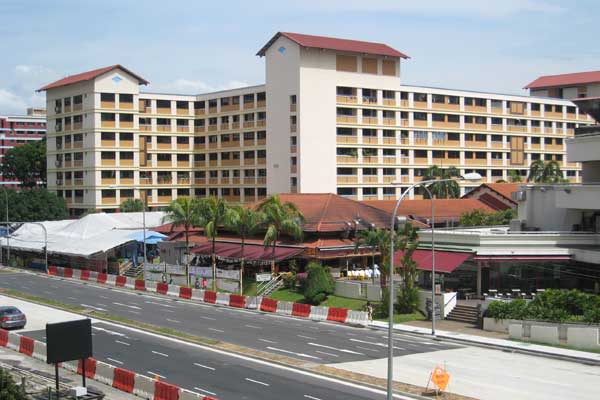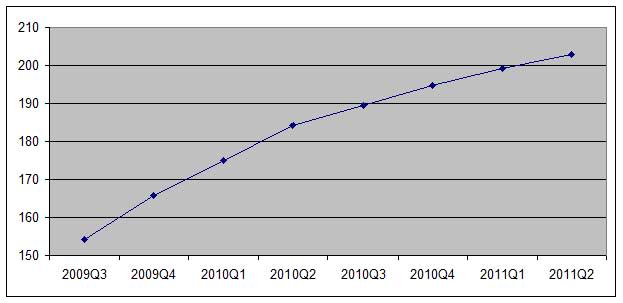Will govt set more property cooling measures?

By Getty Goh
On 10 September 2011, local newspapers reported that the President of the Real Estate Developers Association of Singapore (REDAS) had urged the Singapore government to review the property cooling measures in anticipation of lower housing demand due to the negative global economic sentiments.
The news of REDAS' request was received with mixed reactions. From forum letters to one of Singapore's local newspapers, some contributors felt that the property cooling measures should remain. Others even asked for the introduction of more policies to further arrest the price escalation of properties.
With property prices at an all time high, one question on everyone's mind right now is what will the government do next? Will the government accede to popular demand and introduce more measures so that property prices will become more affordable or will the government heed the request of REDAS and lift some of the measures presently in place?
In my view, I believe the government will likely adopt a wait-and-see approach for the next few months. While it is still too early to say whether the government will remove some of the anti-speculation measures soon, I do not think that the authorities will introduce more measures to cool the market further.
Why the government is likely to adopt a wait-and-see approach
Here are some reasons why:
1. The cooling measures are taking effect
Although the PPPI is presently at peak levels (as at 2011 Q2 the PPPI was 203, which is higher than the previous peak of 181.4 in 1996 Q2), indications that cooling measures are taking effect can be seen from the decelerating price increase. This is graphically shown in the levelling of the trend line in Figure 1. Based on this information, it can be inferred that the cooling measures are working and there is little impetus for the government to take further action.
Figure 1: URA Private Property Price Index (PPPI) from 2009 Q3 to 2011 Q2
Source: URA
2. A healthy real estate sector translates to strong revenue for government
If you have taken a look at Singapore's operating budget, you will notice that the government derives a sizable portion of its operating revenue from property and property related taxes via stamp duties, development charges, etc. Based on an extract from Singapore's FY2010 budget (see Figure 2), stamp duty collected by the government amounts to more than S$2 billion annually, which contributes between 5 per cent and 6 per cent of the total operating revenue.
Historically, property transactions are higher when prices are on the rise and lower when prices are falling. Hence, falling prices will have a direct impact on the amount of stamp duties collected due to the lower number of properties crossing hands.
Figure 2: Budget for FY2010 (extracted from MOF website)
Source: MOF
Apart from taxes, another way that the government profits from a healthy real estate sector is via the government land sales (GLS) program. The following will give you a sense of the revenue that the GLS program generates: based on land tender results from URA's website, the total value of land sold by URA from the start of 2011 till now is in excess of S$4 billion. The total revenue from GLS is likely to be significantly more than S$4 billion as GLS for SLA, HDB and JTC have not been considered.
So how do increasing property prices affect GLS revenue? In a market where property prices are escalating, the strong demand for properties will potentially prompt developers to offer higher bid prices for land. In contrast, when property prices are decreasing, developers will likely be less prepared to pay a premium for land as they are concerned that they will not be able to sell their units as quickly and break even. As a result, it is reasonable to expect that the government will achieve higher land sales revenue during a strong property market as compared to a weak one.
3. High homeownership rate
Ultimately, one of the key reasons why I believe that the government will not allow the Singapore property market to cool significantly is because the majority of Singaporeans and Singapore Permanent Residents (PRs) are homeowners. According to the Singapore Department of Statistics, homeownership rate in 2010 was as high as 87.2 per cent. Hence it is very unlikely that the government will implement measures that would cause a drastic drop in property prices as such actions would have an impact on a wide spectrum of people.
In an ideal world, property prices will appreciate at a steady and sustainable rate, on par with the country's economic growth. In reality, economic, social and political forces add volatility to a country's property market.
The Singapore government has an unenviable task of balancing the need of keeping properties affordable while preventing property prices from stagnating or dropping. It is not easy to meet the aspirations of first time home buyers and upgraders, without bringing prices down from its current peak.
However, based on the points raised above, I guess that if the government has to err on the side of caution in dealing with the property market situation in the coming months, meeting the aspirations of first time home buyers and upgraders would unlikely be the focus.
Getty Goh is director of Ascendant Assets, a real estate research and investment consultancy firm. This article is published ia www.Propwise.sg, a Singapore property blog dedicated to helping you understand the real estate market and make better decisions. Get your free Property Beginner's and Buyer's Guide here.
Related Articles
Is it Time to Look at Investing in Overseas Properties? (at Propwise.sg)
The Coming Singapore Property Market Correction (at Propwise.sg)
Ask Mr. Propwise #8 — Will the Market Crash in 2013? (at Propwise.sg)



